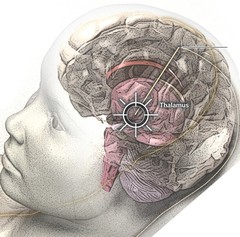- Home
- Medical news & Guidelines
- Anesthesiology
- Cardiology and CTVS
- Critical Care
- Dentistry
- Dermatology
- Diabetes and Endocrinology
- ENT
- Gastroenterology
- Medicine
- Nephrology
- Neurology
- Obstretics-Gynaecology
- Oncology
- Ophthalmology
- Orthopaedics
- Pediatrics-Neonatology
- Psychiatry
- Pulmonology
- Radiology
- Surgery
- Urology
- Laboratory Medicine
- Diet
- Nursing
- Paramedical
- Physiotherapy
- Health news
- Fact Check
- Bone Health Fact Check
- Brain Health Fact Check
- Cancer Related Fact Check
- Child Care Fact Check
- Dental and oral health fact check
- Diabetes and metabolic health fact check
- Diet and Nutrition Fact Check
- Eye and ENT Care Fact Check
- Fitness fact check
- Gut health fact check
- Heart health fact check
- Kidney health fact check
- Medical education fact check
- Men's health fact check
- Respiratory fact check
- Skin and hair care fact check
- Vaccine and Immunization fact check
- Women's health fact check
- AYUSH
- State News
- Andaman and Nicobar Islands
- Andhra Pradesh
- Arunachal Pradesh
- Assam
- Bihar
- Chandigarh
- Chattisgarh
- Dadra and Nagar Haveli
- Daman and Diu
- Delhi
- Goa
- Gujarat
- Haryana
- Himachal Pradesh
- Jammu & Kashmir
- Jharkhand
- Karnataka
- Kerala
- Ladakh
- Lakshadweep
- Madhya Pradesh
- Maharashtra
- Manipur
- Meghalaya
- Mizoram
- Nagaland
- Odisha
- Puducherry
- Punjab
- Rajasthan
- Sikkim
- Tamil Nadu
- Telangana
- Tripura
- Uttar Pradesh
- Uttrakhand
- West Bengal
- Medical Education
- Industry
Brian prosthesis to aid people with memory loss

A brain prosthesis, which includes a small array of electrodes implanted in the brain, is underway, with researchers using it as a substitute to replace or support a damaged part of the brain. Currently under clinical progression on human patients, the device has earlier performed well during testing on animals.
If the researchers have their way, a person suffering from memory loss problems will be as medically fit as any other person.
The researchers explained the device mechanism for example on a patient suffering from Alzheimer’s; in which case the brain receives the sensory input, it creates a memory in the form of a complex electrical signal that travels through multiple regions of the hippocampus, the memory centre of the brain.
At each region, the signal is re-encoded until it reaches the final region as a wholly different signal that is sent off for long-term storage.
If there is damage at any region that prevents this translation, then there is the possibility that long-term memory will not be formed.
The prosthesis is designed to bypass a damaged hippocampal section and provide the next region with the correctly translated memory.
Song and Berger found a way to accurately mimic how a memory is translated from short-term memory into long-term memory, using data obtained first from animals, and then from humans.
That is despite the fact that there is currently no way of "reading" a memory just by looking at its electrical signal.
"It is like being able to translate from Spanish to French without being able to understand either language," said Ted Berger from USC Viterbi School of Engineering.
In hundreds of trials conducted with nine patients, the new algorithm accurately predicted how the signals would be translated with about 90 percent accuracy.
The device that relies on a new algorithm was designed originally at University of Southern California and tested at Wake Forest Baptist Medical Centre in North Carolina.
The research was presented at the 37th Annual International Conference of the IEEE Engineering in Medicine and Biology Society in Milan, Italy.
If the researchers have their way, a person suffering from memory loss problems will be as medically fit as any other person.
The researchers explained the device mechanism for example on a patient suffering from Alzheimer’s; in which case the brain receives the sensory input, it creates a memory in the form of a complex electrical signal that travels through multiple regions of the hippocampus, the memory centre of the brain.
At each region, the signal is re-encoded until it reaches the final region as a wholly different signal that is sent off for long-term storage.
If there is damage at any region that prevents this translation, then there is the possibility that long-term memory will not be formed.
The prosthesis is designed to bypass a damaged hippocampal section and provide the next region with the correctly translated memory.
Song and Berger found a way to accurately mimic how a memory is translated from short-term memory into long-term memory, using data obtained first from animals, and then from humans.
That is despite the fact that there is currently no way of "reading" a memory just by looking at its electrical signal.
"It is like being able to translate from Spanish to French without being able to understand either language," said Ted Berger from USC Viterbi School of Engineering.
In hundreds of trials conducted with nine patients, the new algorithm accurately predicted how the signals would be translated with about 90 percent accuracy.
The device that relies on a new algorithm was designed originally at University of Southern California and tested at Wake Forest Baptist Medical Centre in North Carolina.
The research was presented at the 37th Annual International Conference of the IEEE Engineering in Medicine and Biology Society in Milan, Italy.
Next Story


